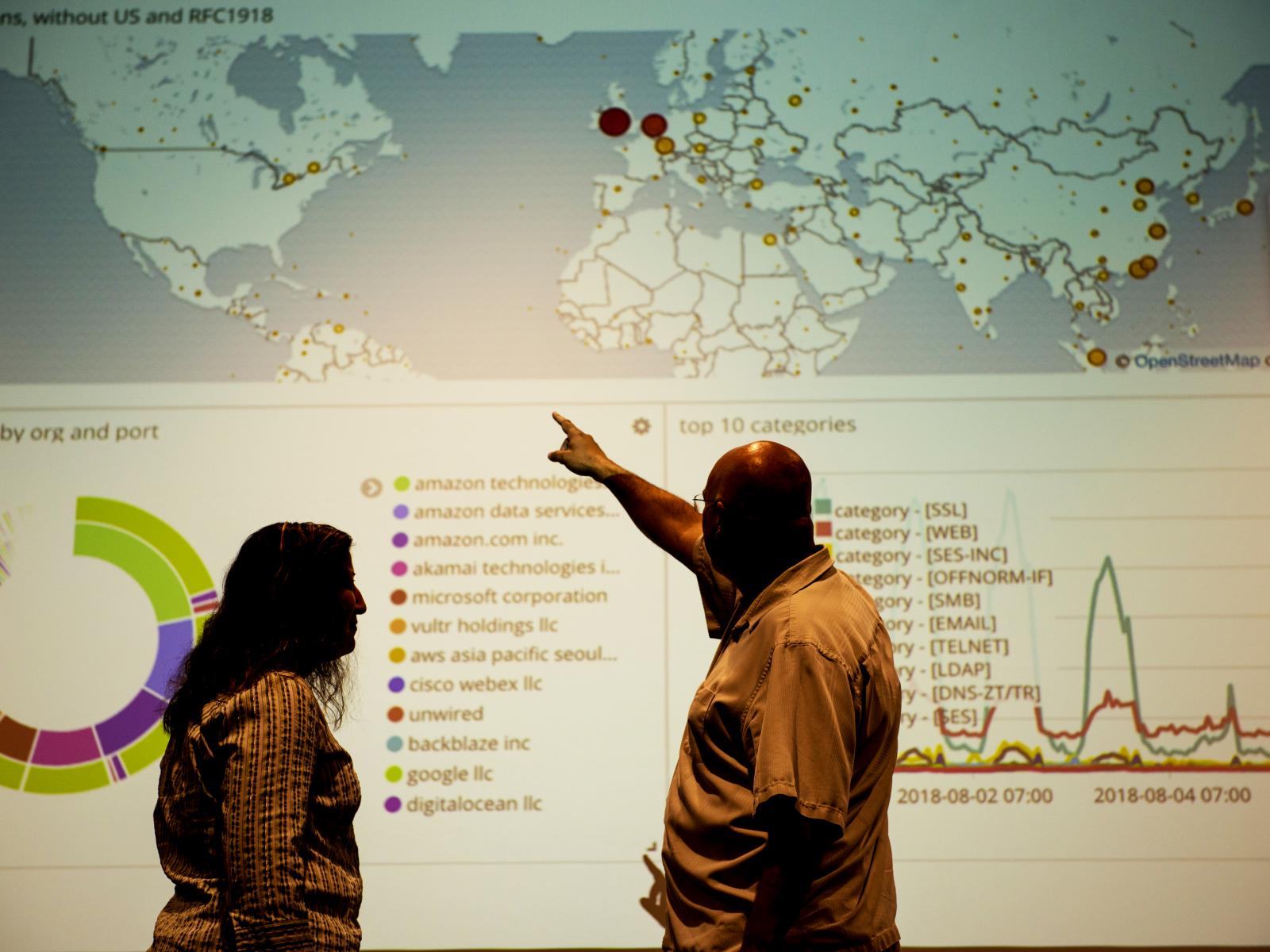Cyber & Information Sciences

PNNL’s cyber and information sciences capability provides research, monitoring, and enhanced cybersecurity tools and processes. We improve reliability and safeguards for critical networks and infrastructures by applying advanced sensing, analysis, and defense. Our research staff are internationally recognized in cyber resiliency theory (encompassing both information and operational technology), cyber analytics, graph theory, semantic computing and knowledge representation, machine learning, text and multimedia analytics, statistics, and human-computer interaction.
For more than three decades, our team has focused on innovation and ongoing improvement in the development and deployment of cybersecurity sensors for wide-scale enterprise network monitoring and situational awareness. We operate the Cooperative Protection Program for DOE-complex cyber defense and the Cyber Security Risk Information Sharing Program, a voluntary information sharing and threat intelligence program for critical infrastructures.
We have unique expertise in the scientific foundations of cybersecurity, including biologically inspired cybersecurity, multiscale graph methods for active cyber defense, secure supervisory control and data acquisition architectures and communications, critical infrastructure resiliency analysis and modeling, and cyber-physical security.
PNNL applies information science capabilities to cybersecurity, particularly in areas of data acquisition, management, and storage systems (e.g., data workflow, provenance, and quality assurance); analytics and algorithms (streaming and graph analytics, scalable machine learning); and decision support (user experience, real-time analysis, and model/algorithm steering in response to user input). We place special emphasis on developing next-generation techniques for analysis and visualization of unstructured data from heterogeneous sources, including emerging techniques for recommender systems that power new human-machine analytic collaboration.
PNNL facilities such as the Cyber Innovation and Operations Center, the Electricity Infrastructure Operations Center, the cyber-physical PowerNET and CyberNET testbeds, and the Electricity Infrastructure Cybersecurity and Resilience Center are important resources that support this research capability.
Primary sponsors for PNNL’s cyber and information sciences research include the Department of Energy’s Office of Advanced Scientific Computing Research, Office of Electricity, the Department of Defense, and the Department of Homeland Security.